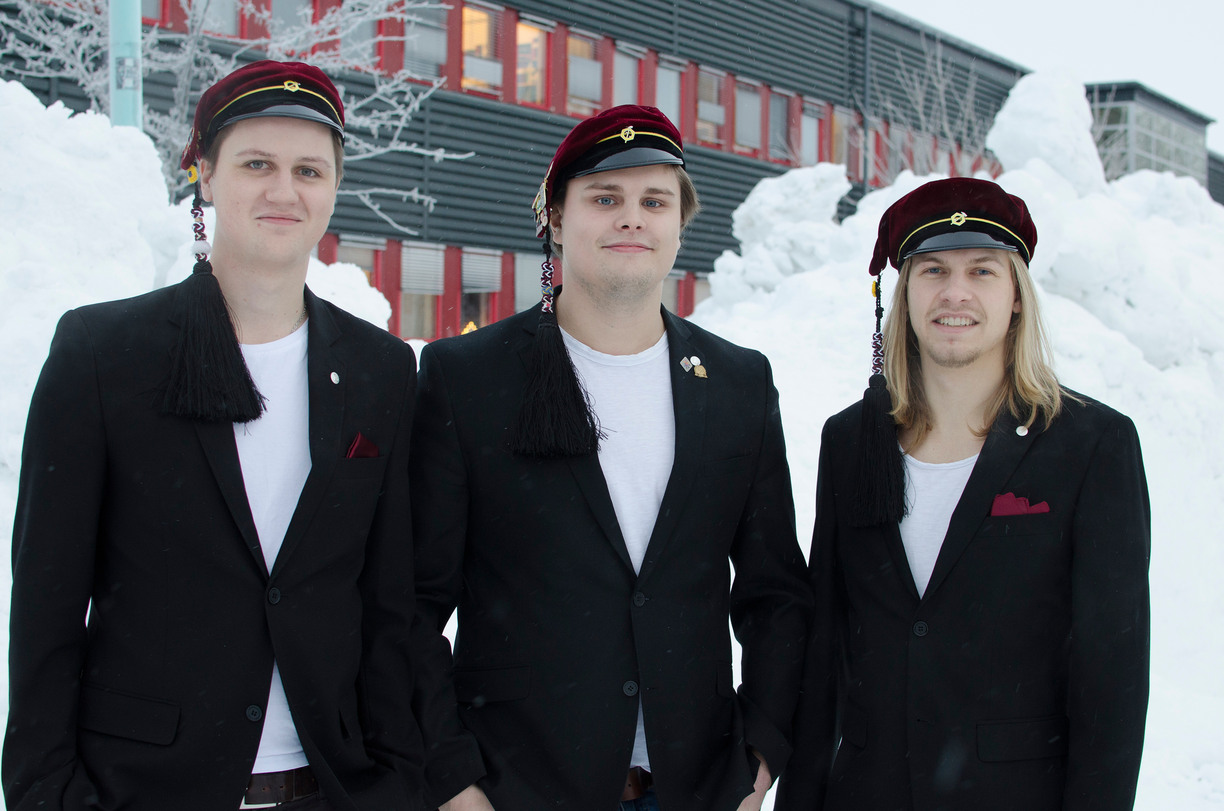
From left: Rikard Alfjorden, Carl Ekberg and Rasmus Rådmark. Foto: Ted Karlsson.
18 January 2018
Students examine CO2 emissions for the World Championships in Åre 2019
Three students at the Master Programme in Sustainable Energy Engineering have quantified carbon dioxide emissions in a project for the Alpine World Ski Championships in Åre, Sweden, in 2019. They have come up with recommendations for how emissions can be reduced.
On behalf of Åre 2019, the students Rikard Alfjorden, Rasmus Rådmark och Carl Ekberg have examined the climate impact for the upcoming championship. The aim is to raise awareness of both guests and athletes for the impact of such an event, and to suggest how carbon emissions can be reduced.
– It has been fun to work with companies involved with Åre about climate impact for the Alpine World Ski Championship 2019. What we could see is that carbon emissions for the event itself, such as the preparation of slopes and snow production, account for a very small part in relation to transportation and food. For the whole event, we have calculated that the emissions are around 15 400 tonnes. This is comparable to the carbon footprint of some 1 400 Swedes in one year, says Rikard Alfjorden, student at the MSc Programme in Sustainable Energy Engineering at Luleå University of Technology.
Advocates bus and train
– Our recommendations are that they should continue the good work they do, for example, to increase district-heating capacity with a more efficient chip boiler, and to replace the fleet of vehicles with renewable fuels instead of fossil diesel. Since the transport account for the bulk of the emissions, there is a lot to gain from transporting by bus, driven by renewable fuels, as well as trains, instead of cars and flights. When it comes to food, a larger proportion of vegetarian and locally produced food leads to less carbon dioxide emissions, says Rasmus Rådmark.
Sweden and Åre performs well
When the students compared Åre with similar arrangements such as Vancouver and St. Moritz, Åre performs well from a climate perspective.
– Sweden has the capacity to use alternative fuels and we have a well-developed district-heating network. The two major sources of emissions, heating and fuel, can therefore be significantly reduced, says Carl Ekberg.
Published:
Updated:

